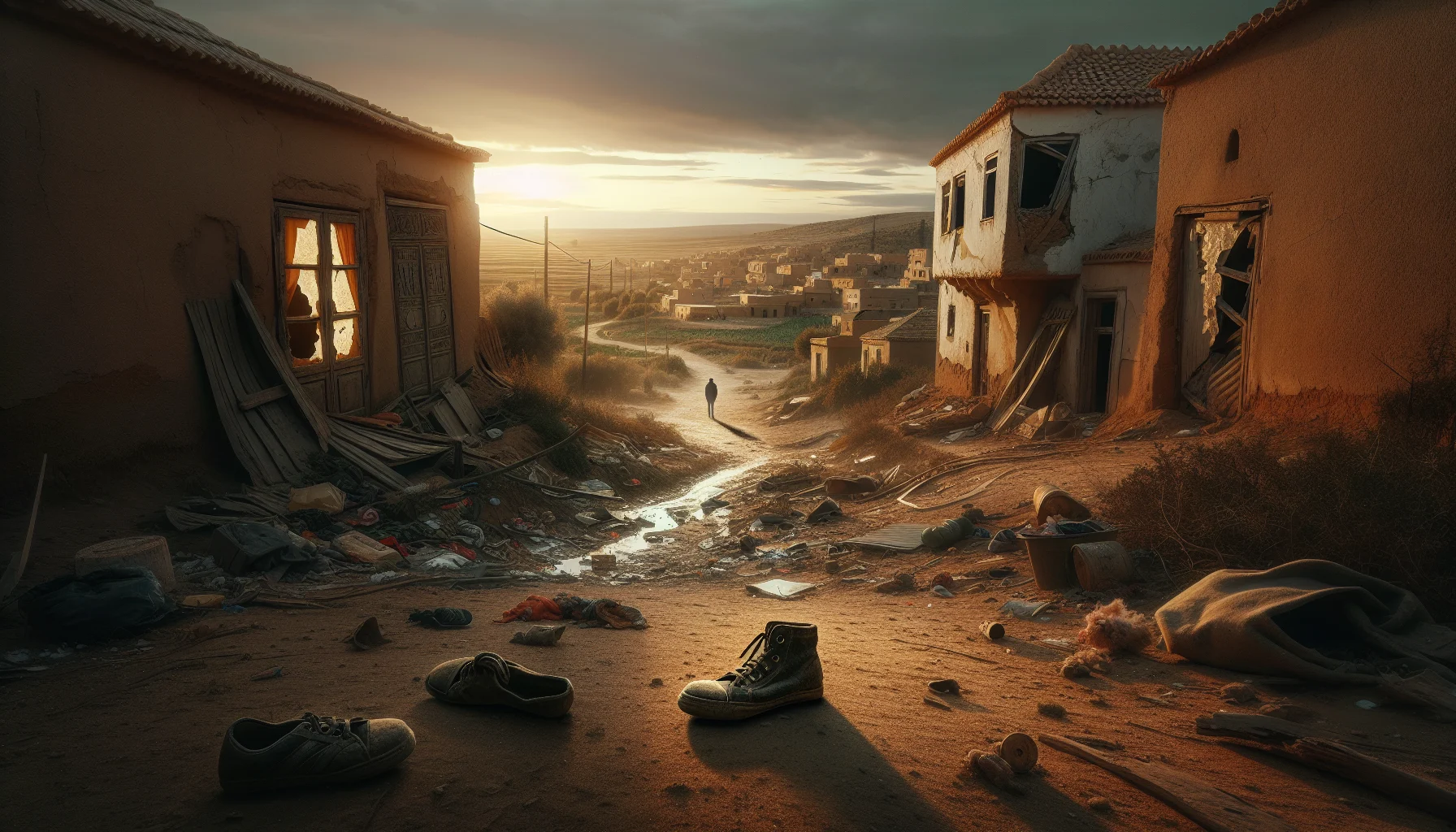
Haouch Khemisti Massacre
by: The Calamity Calendar Team
April 22, 1997
A Night of Horror: The Haouch Khemisti Massacre
As dusk settled over the Algerian village of Haouch Khemisti on April 22, 1997, no one could foresee the approaching horror that would leave indelible scars on this quiet community. Nestled close to the town of Relizane, Haouch Khemisti was a little-known village, caught in the unfortunate crossfire of a protracted conflict—one that had pit government forces against Islamist insurgents since the early 1990s.
The Seeds of Conflict: A Nation Divided
The Algerian Civil War was a product of political upheaval and shattered hopes. In 1991, with the Islamic Salvation Front (FIS) on the brink of an electoral victory, the government abruptly halted elections, plunging the nation into unrest. The move fueled a deadly insurgency, instigating a cycle of violence that would escalate over the following years, as armed factions vied for control by whatever means necessary.
By the late 1990s, both urban centers and rural villages like Haouch Khemisti had become theaters of war, subject to attacks that bore both strategic intent and indiscriminate cruelty. It was a time of whispered fears—of invasions in the dead of night—and a routine haunted by the pervasive uncertainty of survival.
A Village Under Siege
On that fateful night, Haouch Khemisti's tranquility was shattered by the arrival of armed assailants. Under the cloak of darkness, they descended upon the village, their intentions as opaque as the shadows cast by the moonlight. Witnesses recall the terror with chilling clarity: families woken abruptly, doors being kicked in, desperate cries piercing the stillness of night.
Over several harrowing hours, the attackers systematically moved through the village. They spared neither age nor gender. At least 93 villagers lost their lives in brutal fashion, their homes left in ruin, their community left so deeply scarred by violence that it seemed the specter of death might linger there forever.
The World Responds
News of the massacre sent shockwaves well beyond Algeria's borders, drawing international condemnation. There was global bewilderment about the degree of savagery unleashed in this remote outpost—a quintessential representation of the broader Algerian crisis. Yet, despite mounting pressure, there was little immediate respite for the embattled villagers.
Thanks for subscribing!
The Algerian government condemned the massacre, promising increased security in rural areas. But words offered little comfort to those who had lost trust in the protective promises of a state unable to shield its citizens from such atrocious harm. Many survivors were left to navigate a landscape of fear and shattered trust.
Seeking Understanding in the Aftermath
The immediate aftermath of the massacre saw turmoil not only in Haouch Khemisti but also in the global understanding of what Algerians were enduring during this tumultuous period. Analysts contemplated the attackers' allegiance, for the identities of perpetrators remained tangled within the complex web of civil strife and factional warfare.
The massacre prompted deeper introspection about the effectiveness of Algeria's counter-terrorism strategies and initiated urgent discussions around the need for peace. Yet, as was painfully clear, the violence was not an episode with a simple resolution. The massacre highlighted the tragic inadequacy of governmental measures during that era, sparking renewed calls for substantive peace initiatives.
Haouch Khemisti's Legacy
Today, the story of Haouch Khemisti remains a poignant reminder of the fragility of peace and the ease with which human lives can be torn asunder amidst political turmoil. It stands as a somber chapter in the annals of the Algerian Civil War, its details hauntingly illustrative of the broader brutality suffered by ordinary Algerians.
As historians and scholars continue to dissect the conflict, narratives like Haouch Khemisti's offer critical insights into the perpetual cycles of violence and the urgent need for international recognition and resolution of such crises. The world’s collective memory of this event demands ongoing reflection—not only for the lessons it imparts but also as a tribute to the lives irrevocably altered by the night the shadows overtook the village of Haouch Khemisti.
Stay in the Loop!
Become a Calamity Insider and get exclusive Calamity Calendar updates delivered straight to your inbox.
Thanks! You're now subscribed.